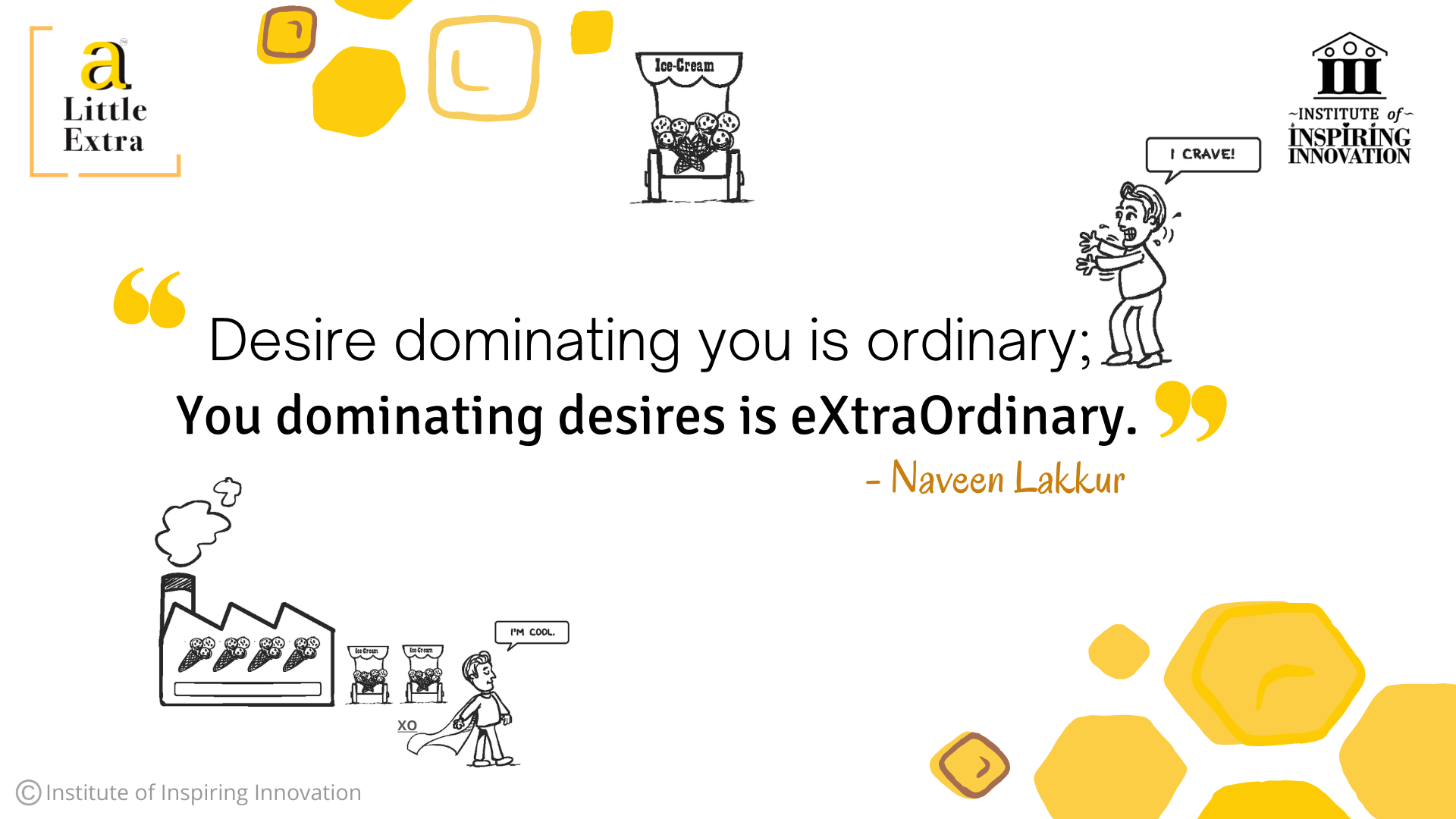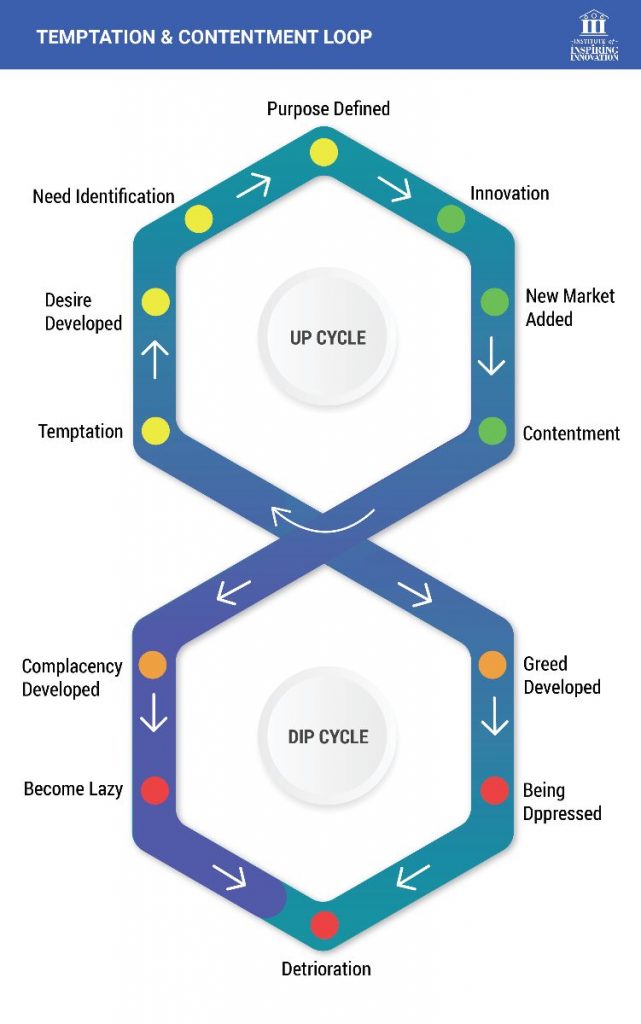You dominating desire is eXtraOrdinary

“Desire dominating you is ordinary; You dominating desire is eXtraOrdinary” – Naveen Lakkur
As humans, we all have desires, the desire to instantly gratify with our favorite food, with a particular utility that could make life easy and complete our tasks quickly, or something cool and trendy. The instant gratification of our desires is pleasurable, and it satisfies us so that we can move on.
Some people go a Little Extra to use those desires to build a business. They delay their desire to buy that delicious food or the product that could make life easy so that they can create innovative products or a system. Not only do they delay gratification, but they also create something that could add value to people’s lives.
At this time, we would like to introduce you to the temptation and contentment loop, you will see how desire plays as human nature. The little extra conscious effort required it to recognize and channelize it.
 In the upcycle and the dipcycle, desire gets developed, and the need gets identified, after that, the purpose gets identified. After this, innovation happens and a new market is added due to a product.
If temptation leads to the development of greed, then it will lead to depression, and then deterioration happens. On the contrary, if the person stops innovating, complacency creeps in, and then, the innovators become lazy, and then their business deteriorates.
At first, there was a desire for themselves. They then wanted to figure out if there is a similar desire in others, or is there a need for that product. That is where the need identification came in. After this, they defined their purpose. Many achievers have delayed gratification, went through this temptation & contentment cycle to pursue their dreams, create an impact through their innovation.
Let us look at a few examples.
In the upcycle and the dipcycle, desire gets developed, and the need gets identified, after that, the purpose gets identified. After this, innovation happens and a new market is added due to a product.
If temptation leads to the development of greed, then it will lead to depression, and then deterioration happens. On the contrary, if the person stops innovating, complacency creeps in, and then, the innovators become lazy, and then their business deteriorates.
At first, there was a desire for themselves. They then wanted to figure out if there is a similar desire in others, or is there a need for that product. That is where the need identification came in. After this, they defined their purpose. Many achievers have delayed gratification, went through this temptation & contentment cycle to pursue their dreams, create an impact through their innovation.
Let us look at a few examples.
 In the upcycle and the dipcycle, desire gets developed, and the need gets identified, after that, the purpose gets identified. After this, innovation happens and a new market is added due to a product.
If temptation leads to the development of greed, then it will lead to depression, and then deterioration happens. On the contrary, if the person stops innovating, complacency creeps in, and then, the innovators become lazy, and then their business deteriorates.
At first, there was a desire for themselves. They then wanted to figure out if there is a similar desire in others, or is there a need for that product. That is where the need identification came in. After this, they defined their purpose. Many achievers have delayed gratification, went through this temptation & contentment cycle to pursue their dreams, create an impact through their innovation.
Let us look at a few examples.
In the upcycle and the dipcycle, desire gets developed, and the need gets identified, after that, the purpose gets identified. After this, innovation happens and a new market is added due to a product.
If temptation leads to the development of greed, then it will lead to depression, and then deterioration happens. On the contrary, if the person stops innovating, complacency creeps in, and then, the innovators become lazy, and then their business deteriorates.
At first, there was a desire for themselves. They then wanted to figure out if there is a similar desire in others, or is there a need for that product. That is where the need identification came in. After this, they defined their purpose. Many achievers have delayed gratification, went through this temptation & contentment cycle to pursue their dreams, create an impact through their innovation.
Let us look at a few examples.

Leave a comment